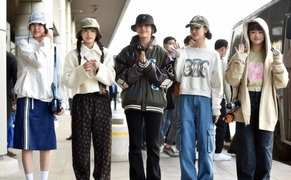AsiaToday reporter Kim In-hee
Heejae is an elementary schoolchild who hasn’t seen her mother since she was a baby. She was born when her parents didn’t expect her. Her biological parents became parents at a very young age, and passed away. Her grandparents were forced to raise her. She doesn’t have many friends at school and doesn’t want to go home. She has been asking her grandmother to raise a puppy since last year, but her grandmother is in bed without giving an answer.
May is considered as “Family Month” in Korea. Apart from the Children’s Day (May 5), there are many days where families can spend time together and reconsider the meaning of the family, such the Parents’ Day (May 8) and the Married Couple’s Day (May 21). However, such ordinary happiness is another story for grandfamilies where grandparents raise their grandchildren.
Most of all, those raising their grandchildren generally have poorer physical health. Besides, they are older and sicker than typical parents, so increased medical expenses add more economic burden on them. Their grandchildren desperately need caregivers. Especially in an era when education level is competitive, young children in grandfamilies easily become a social outcast without getting financial support from their parents. Such difference brings inequality of opportunity, leading to a vicious cycle that lowers quality of future talent. This is why recent surveys show that grandfamilies need the most urgent care.
The Statistics Korea data showed there are 113,297 grandfamilies in Korea as of 2018. There are 59,183 grandchildren under 18 in grandfamilies. By age group, there are 18,076 grandchildren between the ages of 5 and 9, 15,715 between ages 10 and 14, 14,216 under age 5. This means almost 40,000 grandchildren under elementary school age.
For most grandfamilies, parents’ divorce, death, abandonment and other reasons lead grandparents to step in. According to a survey by the Ministry of Gender Equality and Family on the reason why grandparents take on caring for children, 53.2% was parental divorce and remarriage, 14.7% was abandonment and disappearance, and 11.4% was illness, and 7.6% was parental unemployment and bankruptcy.
Most of grandfamilies have financial difficulties, according to a recent survey conducted by the National Assembly’s Legislative Investigation Service in May to examine the welfare system for grandfamilies. As of 2018, 78.3% of grandfamilies have annual income between 10 million to 50 million won, and 6.9% of those with less than 10 million won. About 85% of all grandfamilies earn less than 50 million won per year.
According to another survey conducted by Korea Institute for Health and Social Affairs (KIHASA), published in 2018, the monthly earned income of single parent and grandfamily households was 2,215,000 won in average, only about half of ordinary households with 4,137,000 won.
They are the first to have welfare benefits, but they are actually far from the benefits in reality. Children of families without parents or single elderly households are designated as basic livelihood security target groups and receive governmental welfare support. However, grandfamilies are excluded from welfare benefits because of the fact they have caregivers or parents that even don’t reside with them.
#grandfamily #grandchildren #grandparents
Copyright by Asiatoday
Most Read
-
1
-
2
-
3
-
4
-
5
-
6
-
7





















